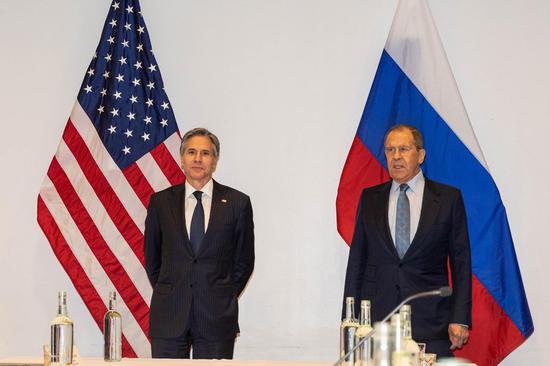
Russian Foreign Minister Sergei Lavrov (R) and U.S. Secretary of State Antony Blinken have a meeting in Reykjavik, Iceland, May 19, 2021. (Icelandic Ministry for Foreign Affairs/Sigurjon Ragnar/Handout via Xinhua)
U.S. Secretary of State Antony Blinken told Russian Foreign Minister Sergey Lavrov on Tuesday that the United States is willing to "continue a substantive exchange with Russia on mutual security concerns."
During a telephone conversation between the two countries' top diplomats, Blinken informed his Russian counterpart of the U.S. "willingness, bilaterally and together with Allies and partners, to continue a substantive exchange with Russia on mutual security concerns, which we intend to do in full coordination with our partners and Allies," according to a statement issued by Ned Price, the State Department's spokesman.
The secretary "reiterated the U.S. commitment to Ukraine's sovereignty and territorial integrity, as well as the right of all countries to determine their own foreign policy and alliances," the statement said.
Blinken also urged Russia to immediately de-escalate the tensions on Ukraine's borders by withdrawing its troops and equipment, emphasizing that a "further" Russian "invasion of Ukraine" will be met with "swift and severe consequences." He urged Russia to pursue a diplomatic path toward resolving the ongoing crisis.
Tuesday's phone call was meant to follow up on a written response last week from Washington addressing Moscow's security concerns.
The document, according to Blinken, "includes concerns of the United States and our allies and partners about Russia's actions that undermine security, a principled and pragmatic evaluation of the concerns that Russia has raised, and our own proposals for areas where we may be able to find common ground."
Speaking of the U.S. document, Russian President Vladimir Putin told a press conference in Moscow on Tuesday that "fundamental Russian concerns were ignored" by the U.S. side.
Russia, Putin said as he concluded a meeting with Hungarian Prime Minister Viktor Orban, had not seen in the U.S. response "adequate consideration of our three key demands regarding (the North Atlantic Treaty Organization's) expansion, the renunciation of the deployment of strike weapons systems near Russian borders, and the return of the (NATO) bloc's military infrastructure in Europe to the state of 1997, when the Russia-NATO founding act was signed."

















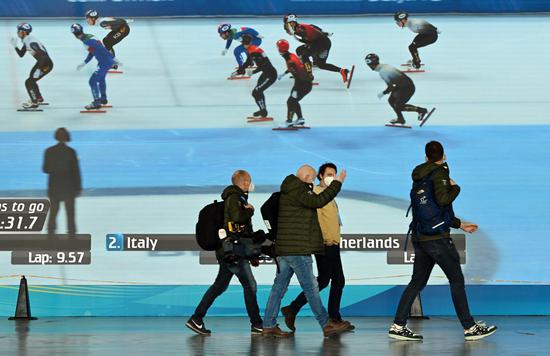











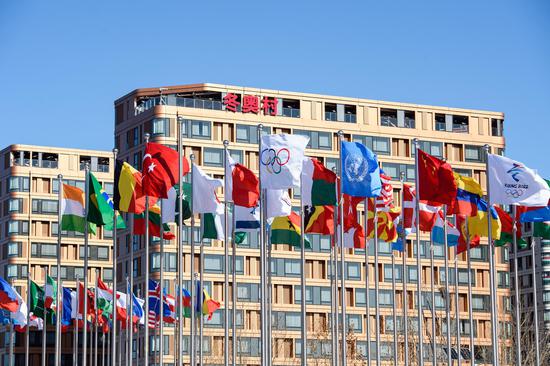










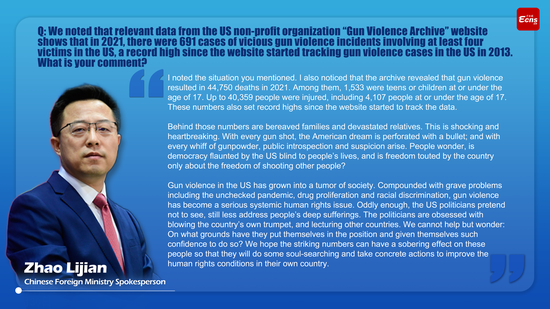



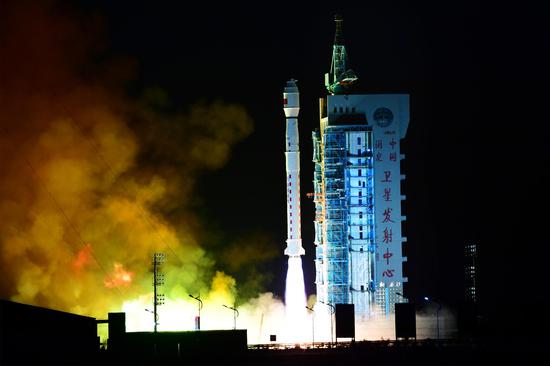





 京公网安备 11010202009201号
京公网安备 11010202009201号